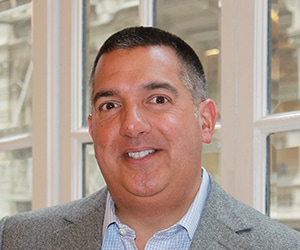Paul Aversano, Alvarez & Marsal managing director and global practice leader of its Transaction Advisory Group, speaks to Global Finance about the state of the industry, investor concerns and deal-making.

Global Finance: How does the economic cycle affect mergers and acquisitions (M&A) and private equity (PE) transactions?
Paul Aversano: We’re essentially 10 years out of the financial crisis and in a record bull market. Looking forward, though, there are headwinds—it’s an election year; trade and tariff issues with China; Brexit; tensions with Iran, North Korea and Russia; the impeachment trial; high levels of consumer debt; the list is long. Markets have been very volatile.
Right now, there’s a dichotomy between the economy and M&A transaction volume, which is down. Even though private equity transaction volume is at historic highs for the last few years, it’s been trending down, and there’s this divergence and decoupling of M&A. During the financial crisis, M&A was financed primarily by commercial institutions. They still lend today, albeit with tighter controls, but now there’s a tremendous amount of unregulated alternative financing sources that invest in risky debt instruments because of competition to deploy capital. These private debt funds are not linked to the economy like commercial banks, though, and don’t have the same contagion risk.
GF: How has private equity changed in the past 10 years?
Aversano: Prior to the financial crisis, particularly with private equity M&A, it was buy low, do some financial engineering, and sell high. Now, it’s buy high, probably sell lower after multiple contraction. Improvement in the operational performance of the underlying assets is what creates value during the period of PE ownership. That makes predicting when to exit a challenge. Right now, competition for deals has driven up valuations. Generalist investors have the hardest time competing with smaller firms that are very specialized by industry or geography, and large investors that see everything due to their sheer depth and global breadth.
GF: What are investors’ biggest concerns?
Aversano: Everywhere in the world, the number one concern is deal flow, mainly high valuations and competition for deals. Investors are sitting on cash, passing on deals because they can’t find value, and not transacting as much as they can. There are trillions of dollars in pent-up demand, and more capital out there than companies to buy. when the bull market ends—and it will—this money will be used for distressed transactions and special situations after a six-to-12-month pause as people adjust to the new normal. Because things happen today at a rapid pace and extreme levels, there will be a precipitous drop. Once that happens, private equity won’t pay as much. And as people realize that the market won’t improve but may deteriorate further, the dam will break and you’ll see a tremendous amount of deal activity.
GF: What geographies have more growth?
Aversano: Currency movements tend to drive deal flows around the world, especially when a currency is expected to rise from its lows. Countries like Brazil and India are large, democratic and disjointed, but therein lies the opportunity. Emerging markets can be like the Wild West though, so you’ve got to tread carefully.
GF: How does competition for deals affect the deal process?
Aversano: It largely affects the time for confirmatory due diligence. In the mid-1990s leading up to the dot-com bubble, you had 90 days. As the market became heated, the window shrank to 30 days, and right before dot-com bust, 10 days. After everything exploded, we were back to 90 days because investors were hesitant to buy anything. Today, you have 10 days, and you’re not going to get all the information you want. Historically, investors would price any risks into the deal; today, investors will pay a premium regardless of risk because of the competition, and that’s a huge red flag.



